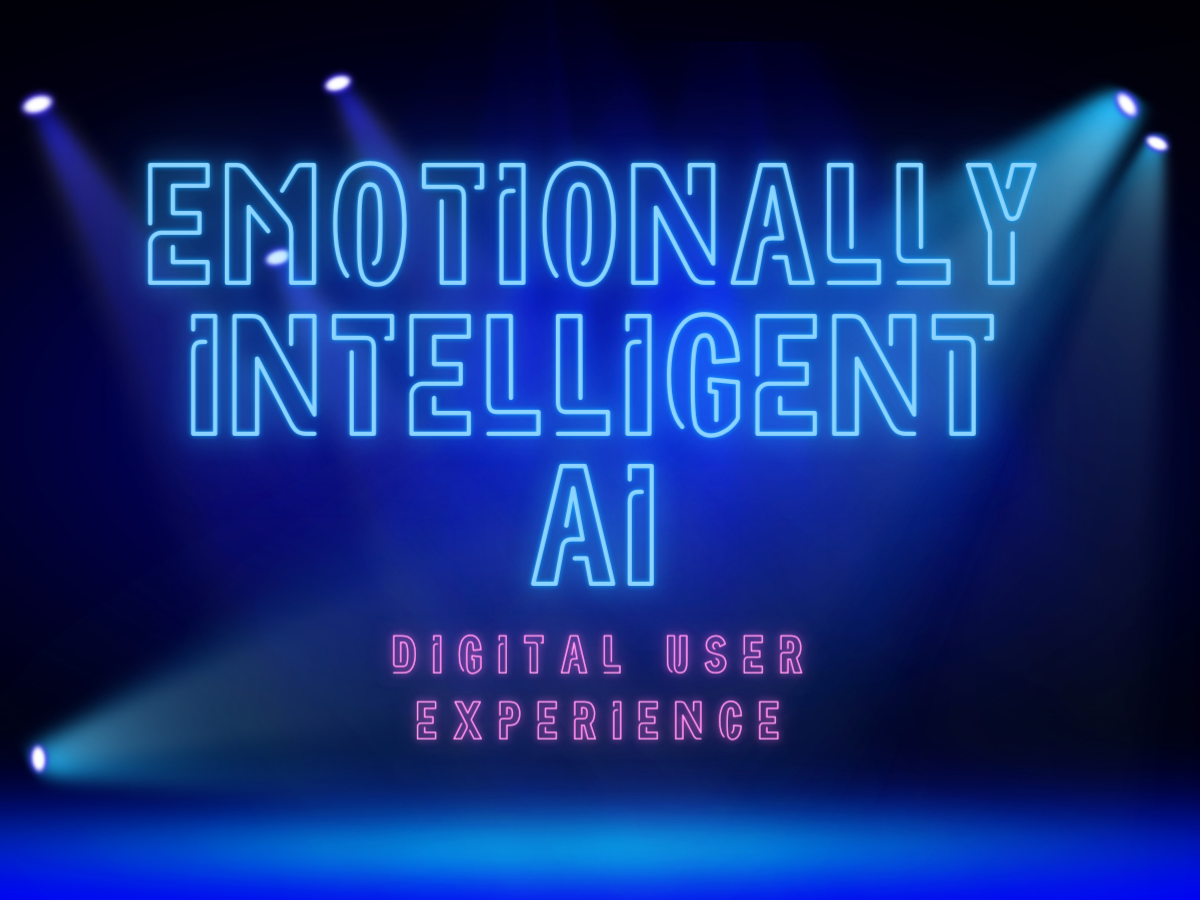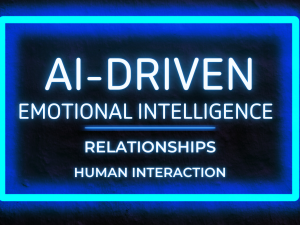1. Introduction
In the rapidly evolving digital landscape, the role of artificial intelligence (AI) has become increasingly significant. AI-powered technologies are transforming various aspects of our lives, including the way we interact with digital platforms and services. One exciting development in this field is the emergence of emotionally intelligent AI assistants. These intelligent virtual companions are revolutionizing the digital user experience by understanding and responding to human emotions in a more empathetic and personalized manner. In this article, we will explore how emotionally intelligent AI assistants are redefining the digital user experience and the implications they hold for the future.
2. Understanding Emotional Intelligence
Before delving into the realm of emotionally intelligent AI assistants, it is essential to understand the concept of emotional intelligence. Emotional intelligence refers to the ability to perceive, understand, and manage emotions effectively. It involves recognizing and empathizing with the emotions of oneself and others, as well as using emotional information to guide thinking and behavior. By incorporating emotional intelligence into AI systems, developers aim to create virtual assistants capable of recognizing and responding to human emotions with sensitivity and understanding.
3. The Role of AI Assistants in the Digital User Experience
AI assistants have become ubiquitous in our digital lives. From voice-activated smart speakers to virtual chatbots, these intelligent agents assist users in various tasks, ranging from answering queries to managing schedules. They have become an integral part of our digital ecosystem, simplifying daily routines and providing valuable information on-demand. However, traditional AI assistants primarily focused on providing information and executing tasks efficiently, lacking the ability to comprehend human emotions.
4. The Emergence of Emotionally Intelligent AI Assistants
With advancements in AI and natural language processing, emotionally intelligent AI assistants have started to enter the scene. These next-generation AI assistants are designed to analyze speech patterns, facial expressions, and other behavioral cues to infer the emotional state of users accurately. By deciphering emotions, these assistants can adapt their responses, tone, and behavior accordingly, creating a more personalized and engaging user experience.
5. Benefits of Emotionally Intelligent AI Assistants
Emotionally intelligent AI assistants bring a multitude of benefits to the digital user experience. Firstly, they can establish a deeper connection with users by empathizing with their emotions. This empathetic interaction enhances user engagement, making the digital experience more human-like and enjoyable. Secondly, emotionally intelligent AI assistants can tailor their responses based on the user’s emotional state, offering appropriate support and guidance. This personalization contributes to a higher level of user satisfaction and builds trust in the AI assistant’s capabilities.
6. Enhancing User Engagement and Satisfaction
One of the significant advantages of emotionally intelligent AI assistants is their ability to enhance user engagement and satisfaction. By understanding user emotions, these assistants can respond with appropriate empathy and provide support when users are feeling stressed, anxious, or frustrated. For example, if a user expresses sadness or loneliness, the AI assistant can offer comforting words or suggest engaging activities to uplift their mood. Such empathetic interactions not only address the user’s emotional needs but also foster a sense of companionship and support.
7. Personalized User Experiences
Emotionally intelligent AI assistants have the power to deliver personalized user experiences like never before. By recognizing emotions, these assistants can adapt their responses, recommendations, and suggestions to align with the user’s emotional state and preferences. For instance, if a user is feeling excited or adventurous, the AI assistant can provide suggestions for engaging activities or events that match their mood. This personalization not only enhances user satisfaction but also strengthens the bond between the user and the AI assistant, leading to long-term engagement and loyalty.
8. Ethical Considerations and Challenges
While emotionally intelligent AI assistants hold immense potential, they also raise ethical considerations and challenges. Privacy and data security become critical issues as these assistants need access to personal information to gauge emotions accurately. Striking the right balance between personalization and privacy becomes crucial to ensure user trust. Moreover, biases in AI algorithms must be addressed to prevent any unintentional discrimination or manipulation based on emotional responses. Transparency and accountability in AI systems are essential to maintain ethical standards and ensure user well-being.
9. The Future of Emotionally Intelligent AI Assistants
The future of emotionally intelligent AI assistants is promising. As technology continues to advance, these assistants will become even more sophisticated in understanding and responding to human emotions. They will learn from user interactions and continuously improve their emotional intelligence capabilities. Emotionally intelligent AI assistants have the potential to become trusted companions, supporting users in various aspects of their lives, including mental health, well-being, and personal growth. Their integration into everyday devices and services will redefine how we interact with technology and elevate the digital user experience to new heights.
10. Conclusion
Emotionally intelligent AI assistants are transforming the digital user experience by leveraging emotional intelligence capabilities. These assistants have the ability to recognize, understand, and respond to human emotions, creating a more engaging, personalized, and empathetic interaction. With benefits such as enhanced user engagement, satisfaction, and personalized experiences, emotionally intelligent AI assistants are reshaping the way we engage with technology. However, ethical considerations and challenges must be addressed to ensure responsible and trustworthy deployment. As the field continues to evolve, emotionally intelligent AI assistants will play an increasingly significant role in our digital lives, redefining the boundaries of human-computer interaction.
FAQs
Q1: How do emotionally intelligent AI assistants recognize human emotions?
Emotionally intelligent AI assistants analyze various cues such as speech patterns, facial expressions, and behavioral cues to infer human emotions accurately. This information is then used to adapt their responses and behavior accordingly.
Q2: Are emotionally intelligent AI assistants capable of learning and improving their emotional intelligence?
Yes, emotionally intelligent AI assistants can learn and improve their emotional intelligence capabilities over time. They continuously gather data from user interactions and refine their understanding of emotions, allowing them to provide increasingly accurate and personalized responses.
Q3: Can emotionally intelligent AI assistants help with mental health and well-being?
Emotionally intelligent AI assistants hold potential in supporting mental health and well-being. By recognizing emotions and providing empathetic support, they can offer guidance, suggest coping mechanisms, and provide resources for improving mental well-being.
Q4: How can emotionally intelligent AI assistants enhance user engagement?
Emotionally intelligent AI assistants enhance user engagement by empathizing with users’ emotions and responding accordingly. This empathetic interaction creates a more human-like and enjoyable experience, fostering a stronger connection between the user and the AI assistant.
Q5: What are the ethical considerations surrounding emotionally intelligent AI assistants?
Ethical considerations include privacy and data security, preventing biases in algorithms, and ensuring transparency and accountability in AI systems. These aspects are crucial to maintain user trust and prevent any unintended discrimination or manipulation based on emotional responses.












+ There are no comments
Add yours